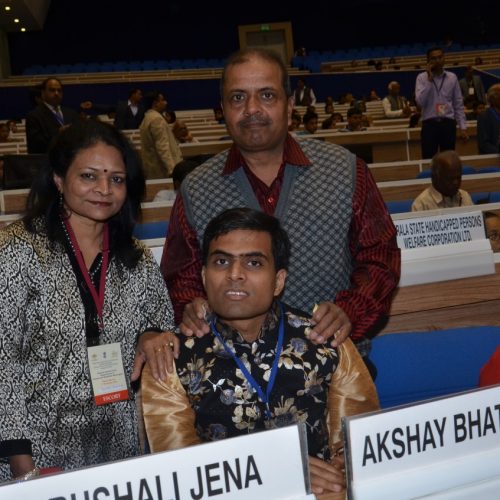In an unprecedented step toward inclusive governance, Akshay Bhatnagar, a young man diagnosed with autism, has become the first individual on the autism spectrum to join the Rajasthan Secretariat, one of the highest administrative bodies in the state.
His story is one of resilience, determination, and a mother’s unwavering support in the face of systemic barriers. Diagnosed with autism at the age of three, Akshay was once advised by doctors to be institutionalized. Instead, his mother, Pratibha Bhatnagar, left her government job to homeschool and mentor him full-time.
“I knew he was different, but I never believed he was incapable,” she said in an interview.
Akshay not only completed his mainstream education but also went on to pass the Rajasthan Subordinate and Ministerial Services Selection Board (RSMSSB) exam. In 2023, he was appointed as a Grade II Clerk in the Secretariat—a job that demands both intellectual acuity and discipline.
What sets his success apart is not just the personal milestone, but the institutional change it represents. Pratibha fought a series of legal battles to ensure her son’s eligibility and right to be evaluated fairly. At the time, autism was not recognized under the disability quota by the Rajasthan Public Service Commission.
“He made it not because the system enabled him, but because we refused to give up,” she said.
Akshay’s achievements are not limited to academics. He has won multiple medals in state-level para-athletic competitions, including gold in shot put and 1,500 meters. His efforts have been recognized nationally, earning him the Vice President’s National Role Model Award and the Cavinkare Ability Mastery Award.
Social media and civil society have applauded the breakthrough, with calls for public service commissions to become more inclusive of neurodiverse candidates. While Akshay’s story is inspiring, experts emphasize it also reflects the systemic gaps that families like his must still navigate.
Understanding Autism: Characteristics and Treatment
What is Autism?
Autism Spectrum Disorder (ASD) is a neurodevelopmental condition that affects communication, social interaction, and behavior. It is called a “spectrum” because the degree and combination of symptoms can vary widely.
Common Characteristics:
- Difficulty with verbal and non-verbal communication
- Challenges with social interactions or understanding social cues
- Repetitive behaviors or routines
- Intense focus on specific interests
- Sensory sensitivities (e.g., to noise, light, or textures)
- Varying intellectual abilities—some may have average or above-average IQ, others may have intellectual disabilities
- Is There a Cure for Autism?
There is currently no “cure” for autism, and many experts and advocacy groups emphasize that autism is not a disease to be cured but a difference to be understood and supported.
However, early intervention, behavioral therapy, educational support, and occupational therapy can significantly improve quality of life and functional independence.
Supportive Approaches Include:
- Applied Behavior Analysis (ABA)
- Speech and Language Therapy
- Occupational Therapy
- Social Skills Training
- Individualized Education Plans (IEPs) in schools
- Parental training and advocacy
Autism awareness has grown globally, but access to diagnosis and support in India remains limited, especially in rural areas.


